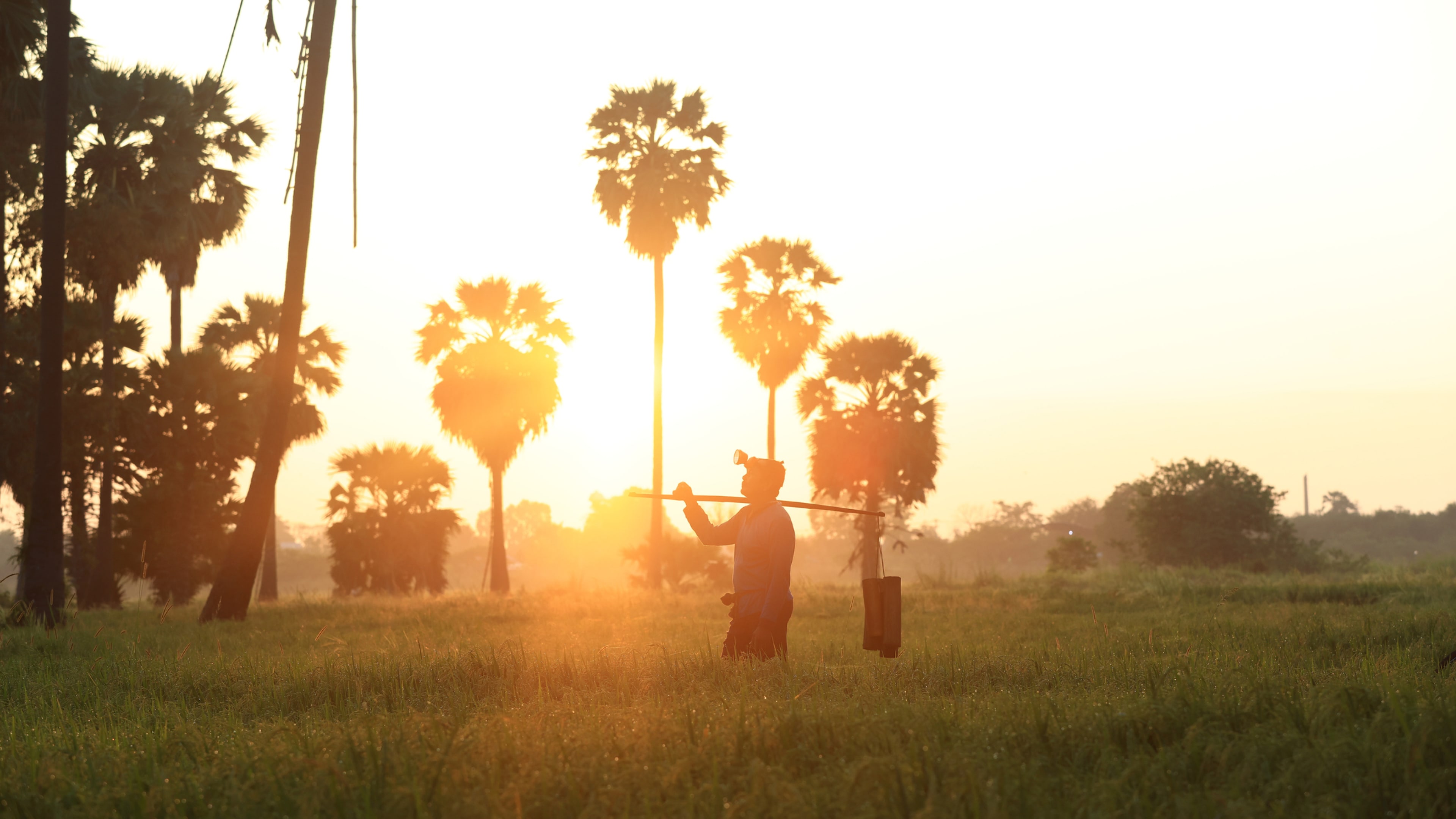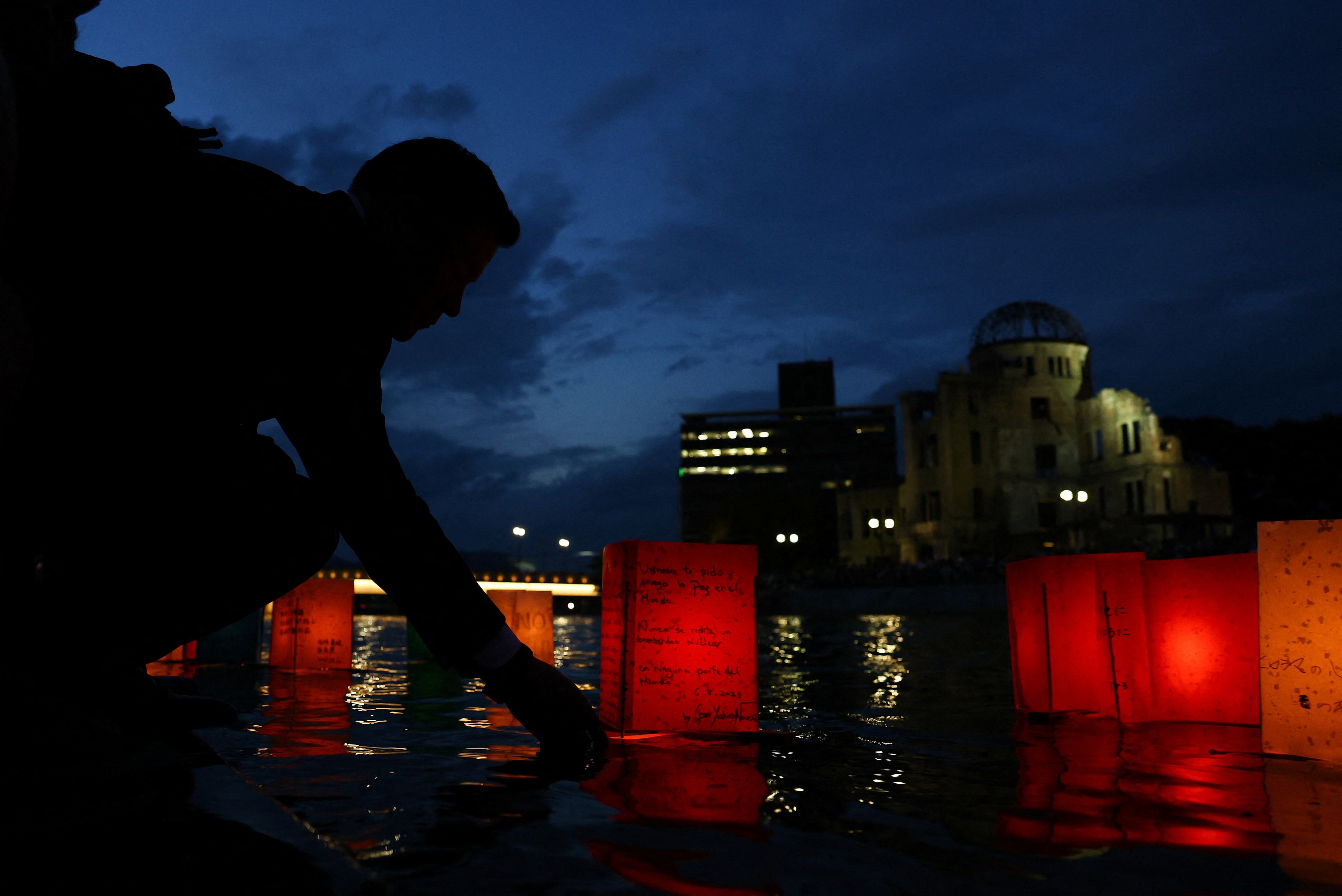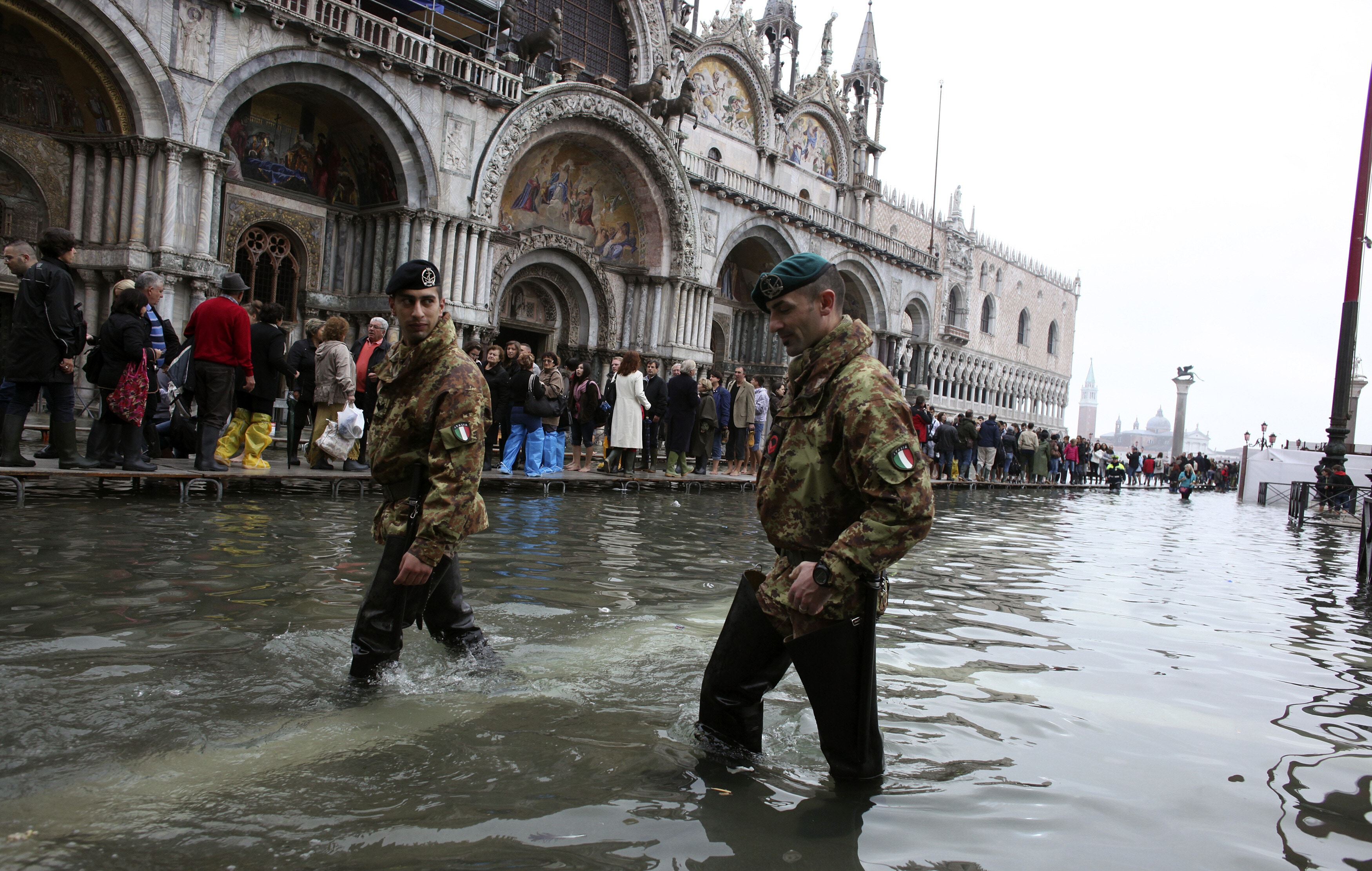How can development agencies learn to thrive in a multi-crisis world?
An increasingly uncertain world … a volunteer gives a meal to a woman at a charity kitchen during Ramadan in Sanaa, Yemen.
Image: Reuters/Khaled Abdullah
Stay up to date:
Humanitarian Action
- The current world situation presents overwhelming challenges for development agencies.
- State and non-state actors must work together to achieve the SDGs.
- Humanitarian organizations must cultivate partnerships and agility to thrive in an increasingly complex environment.
The Swiss Agency for Development and Cooperation (SDC), like other development agencies, currently operates in a multi-crisis context, with emergencies ranging from COVID-19 to the increase of fragility due to long-lasting and new conflicts, as well as the negative impacts of climate change.
International cooperation actors are meant to operate in fragile environments, but the scale of the current challenges seems overwhelming. While all countries have been affected by COVID-19, developing countries have been harshly hit by the social, economic and health impacts of the pandemic, with extreme poverty on the rise for the first time in two decades as well as economic and gender inequality further widening.
According to the UN, the world is facing the highest number of conflicts since 1945: Ukraine, Yemen and Afghanistan to name just a few examples. The geopolitical context has always been key for development and humanitarian actors. In a globalized and increasingly digitalized world, crisis and conflicts rapidly spread across borders and have numerous and simultaneous spill-over effects. Last but not least, the climate crisis combined with raising energy and food prices is accelerating debate on how to achieve the energy transition.
In this context, international cooperation is crucial, but the organizations involved cannot face the global challenges on their own. Resources available to developing countries – domestic, international, public and private – remain under major stress. According to the OECD, the annual Sustainable Development Goals’ (SDGs) financing gap in developing countries has increased from $2.5 trillion to $4.2 trillion as a result of the pandemic. The shortfall is without taking into account the disastrous effect the Ukraine war already has on energy prices, food security and stability in a high number of countries. A substantial increase in resources, beyond official development assistance, is required for the 2030 Agenda not to fail. This raises questions about how development agencies can rally support to alleviate and prevent increasing poverty levels worldwide.
Accept our marketing cookies to access this content.
These cookies are currently disabled in your browser.
Common goals for common good
However grim the outlook, it should not be forgotten that the international community set a clear signal by committing to the 2030 Agenda. The adoption of the 17 SDGs of the 2030 Agenda in 2015 marked a paradigm shift: It provided a set of shared guidelines and, more importantly, reflected a common understanding between the global North and South on addressing universal challenges.
Despite ground lost during the pandemic, state and non-state actors recognize the importance of acting collectively. Beside states’ mobilization, non-state actors play a key role in achieving the SDGs. We observe an increasing commitment from civil societies, the private and financial sector, foundations and international organizations across the globe. They are involved in looking for innovative solutions to reach the goals. Their role is fully acknowledged by SDG 17: “Strengthen the means of implementation and revitalize the global partnership for sustainable development.”
The key word here is partnership. The SDGs will not be achieved if state and non-state actors fail to cooperate. Each of them should use their strengths to reinforce their impact. State actors bear the responsibility for setting the appropriate frameworks. They are expected to ensure that policies are inclusive and work according to the Leave No One Behind principle. This is the central, transformative promise of the 2030 Agenda and is crucial to ensure equitable development and foster societies’ resilience.

Innovating out of crisis
Development agencies are thus required to become more agile, engage in multiple partnerships and increasingly convene stakeholders with the aim of tackling global challenges. Though the importance of funding to achieve the SDGs cannot be underestimated, more finance does not provide solutions to everything. To deliver in the most difficult contexts, and in the face of global challenges, donors, multilateral agencies and other stakeholders have to listen to one another and work closely together in order to achieve results. The collaboration needs to be purpose-driven. Sustainable development requires new mindsets from all stakeholders.
That is why Switzerland engages with its multilateral and bilateral partners to have that conversation, strengthening collective global security and effective multilateralism, and consolidating global partnerships while reinforcing purpose-driven action.
An example of how to embrace those complex challenges in a different way was the convening of the first International Cooperation Forum Switzerland in Geneva from 31 March to 1 April. With the motto “together different”, the IC Forum assembled young people, experts from academia, the private and financial sector and international cooperation organizations. A set of people who would not meet under usual circumstances found innovative approaches to face the urgent actions to address climate change.
How is the World Economic Forum helping to improve humanitarian assistance?
In this “age of multiple crisis”, development agencies remain relevant, as long as they think out of the box, innovate and adapt to new challenges. The key will be to develop stronger networks, remain agile and always aim for increased impact.
Don't miss any update on this topic
Create a free account and access your personalized content collection with our latest publications and analyses.
License and Republishing
World Economic Forum articles may be republished in accordance with the Creative Commons Attribution-NonCommercial-NoDerivatives 4.0 International Public License, and in accordance with our Terms of Use.
The views expressed in this article are those of the author alone and not the World Economic Forum.
Forum Stories newsletter
Bringing you weekly curated insights and analysis on the global issues that matter.
More on Resilience, Peace and SecuritySee all
Robert Muggah
September 17, 2025
Andrea Willige and Gayle Markovitz
September 15, 2025
Naoko Tochibayashi
September 1, 2025
Charles Bourgault and Sarah Moin
August 19, 2025
Florian Krampe
July 31, 2025







